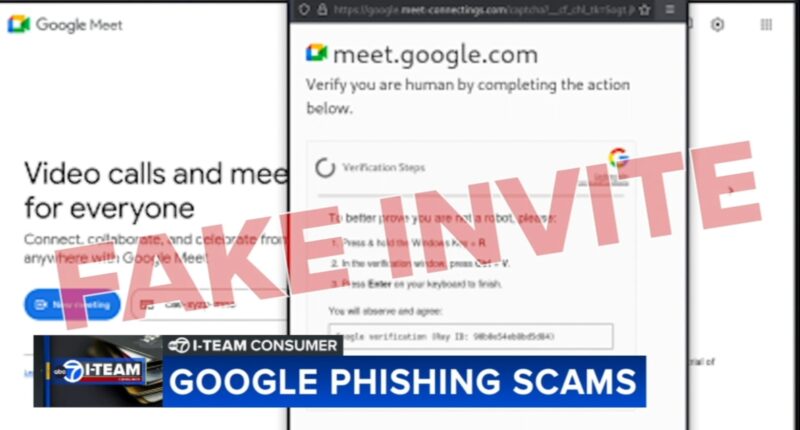CHICAGO (WLS) — Gmail, Google Calendar, and Google Meet are all useful tools, but now cybercriminals are finding ways to mimic them.
The ABC7 I-Team is finding out how scammers are tricking people with fake calendar invites and meeting links.
ABC7 Chicago is now streaming 24/7. Click here to watch
It’s not just another spam text or email. They are sophisticated phishing links which could be placed into popular Google tools like Google Calendar and Google Meet, all of it to deceive and defraud.
Google is the most popular search platform, and it also offers email, calendar invites and video calls. Now, the I-Team is finding that scammers are taking advantage of Google’s popularity.
We see a triple threat targeting Google users specifically through Google Meets invites and Google itself,” said Chicagoan Gerald Kasulis with Nord Security.
Kasulis said cybersecurity experts have spotted the threats.
“Users receive fake calendar invites and those invites automatically accepted with the link in there, and then users prompt to click on that link for the calendar invites that would specifically outline the information to the cybercriminals,” Kasulis said.
There are also spoofed Google Meet invites.
“And that’s going to have an actually fake injected link in that’s link,” Kasulis said. “When you click in, you’re going to download malware that exposes your personal information (jump) And the last one is Google scams itself and where actually cybercriminals pretend to be Google support engineers that you get a problem to reset your Google account.”
You should never trust emails or links asking you to reset your account.
As for the other two scams, Google says users should enable the “Known Senders Setting” in Google Calendar, which limits or blocks invites from random people from populating in your calendar. This is automatically turned on for new consumer accounts.
Google says when it gets reports of malicious activity, it acts swiftly to shut it down. Google added that Google Meet was built with security and privacy in mind and has controls in place to prevent abuse. Google also said that “Gmail’s AI-powered defenses block 99.9% of spam, phishing, and malware before they reach users’ inboxes.”
“This is not Google’s fault,” Kasulis. “It’s just cybercriminals going after the platform that we trust.”
Copyright © 2025 WLS-TV. All Rights Reserved.

















